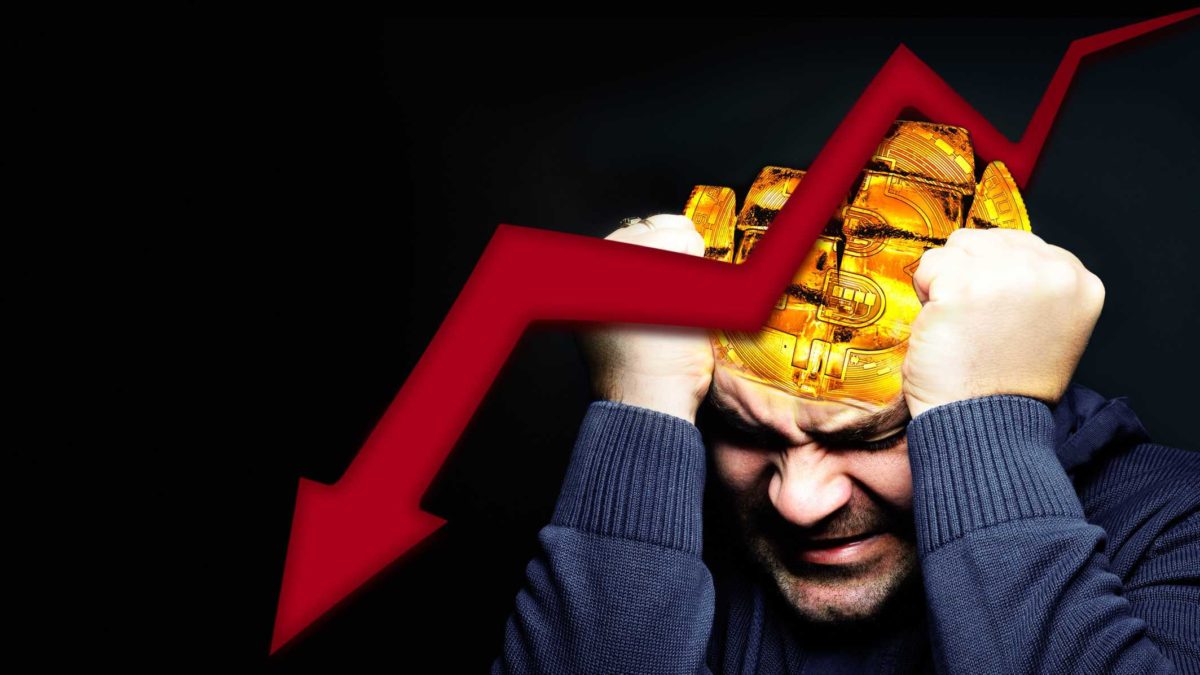The Bitcoin (CRYTPO: BTC) price is down 8% over the past 24 hours. One Bitcoin is currently worth US$42,245 (AU$57,868).
And it's not just Bitcoin falling.
According to data from CoinMarketCap, every one of the top 57 cryptocurrencies by market valuation is in the red at the time of writing.
In fact, out of the top 100 cryptos, only 2 have posted gains over the past 24 hours. OMG Network (CRYTPO: OMG) is up 19% and Celo (CRYPTO: CELO) is up 8%.
Not even the once joke token and recent rising crypto star Dogecoin (CRYPTO: DOGE) has escaped the wider crypto selloff. Dogecoin is down 8% in 24 hours, currently worth 20 US cents.
As an important reminder of the wild volatility that continues to come along with crypto investing, Dogecoin peaked (briefly) above 70 US cents on 8 May. Investors who bought at that peak are currently nursing losses of some 72%.
Ouch.
Why are cryptocurrencies losing ground today?
Bitcoin, Dogecoin, and the wider crypto world tend to come under pressure from similar forces that impact global share markets.
The S&P/ASX 200 Index (ASX: XJO) has shrugged off its losses from earlier in the day to close up 0.35%. But it's still down 2.5% from last Friday's open.
US, European, and Asian share markets have been selling off as well. The Nasdaq (INDEXNASDAQ: .IXIC), as one example, closed down 2.2% yesterday (overnight Aussie time).
So, what's going on?
Some analysts have been forecasting a pending market correction for a while now, with many citing stretched valuations. However, the catalyst for the recent selling appears to be China Evergrande Group (HKG: 3333).
I penned an article on the Chinese property giant's looming debt woes earlier today. (You can find that here.)
That article focused on the potential impact on ASX 200 iron ore miners, should Evergrande be left to fail. The iron ore connection – with China's near insatiable steel appetite fuelling its construction boom – is rather obvious.
But could a potential Evergrande collapse be seeing investors sell their Bitcoin holdings too?
Bitcoin's losses tied to sale of risk-off assets
Yes, says Jonathon Miller, managing director Australia of cryptocurrency exchange Kraken.
According to Miller:
Quite often there is negative news out of China and we see this impact the price of Bitcoin to varying degrees, and the fallout from Evergrande is following a similar pattern…
Simply put, Bitcoin is an emerging store of value. It does have a tendency to be strongly correlated with stocks from time to time. Bitcoin is also much more volatile an asset, though its volatility continues to fall as it matures and adoption persists. For these reasons, it comes as no surprise that we're seeing Bitcoin move lower alongside other risk-off assets.
Miller added that "the long-term trend of the cryptocurrency indicates resilience".
Dogecoin soars in popularity
The latest selloff may give newer crypto investors the jitters. But it's unlikely to dissuade crypto bulls, accustomed to potential outsized price swings in either direction.
And it looks like ever more Aussies are jumping on that bandwagon.
Australian crypto exchange CoinSpot reported yesterday that its customer numbers have more than doubled in less than 8 months.
In February, CoinSpot had 1 million customers. As of Monday's report, the exchange boasted more than 2 million customers.
CoinSpot credited the rapid growth to "the surge of Australian retail, institutional, and SMSF investors into the crypto market, and … the 2021 crypto boom".
As for Dogecoin, CoinSpot noted an eye-popping increase in investor interest relative to Bitcoin:
Whilst Bitcoin has still been the most popular traded cryptocurrency on the CoinSpot platform to date, Dogecoin has soared to the second most popular cryptocurrency, due to the dramatic price increase experienced during May 2021.
Trading activity in Dogecoin on CoinSpot increased by 3,840% year-to-date, and Bitcoin trading activity increased by 190%, compared to the same time last year.
What's next for Dogecoin and Bitcoin prices?
With investors across the world keeping one eye on the Evergrande crisis, the short-term answer to that question may well sit with Chinese President Xi Jinping.
Will his government toss the embattled, debt-laden property developer a lifeline?
Or won't they?







